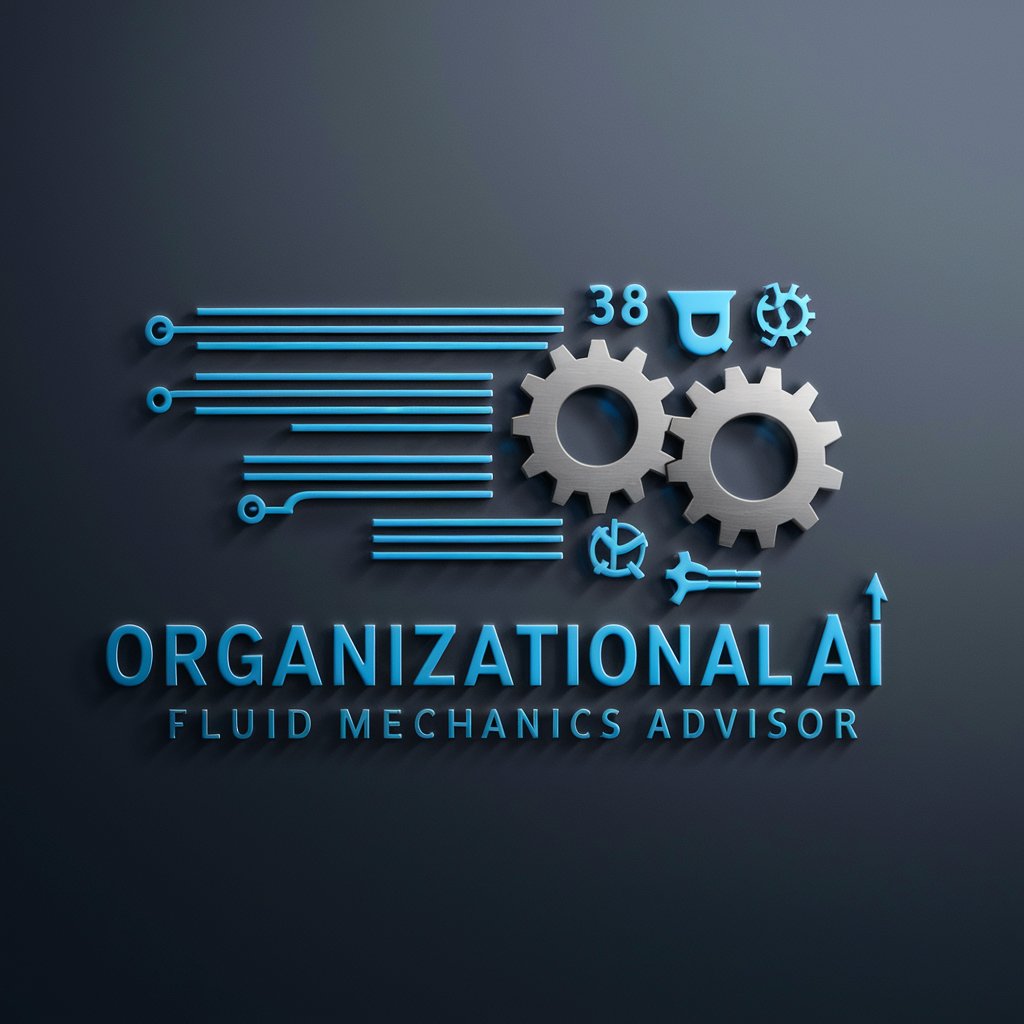Thermal Engineering Advisor - Thermal Engineering Insights

Welcome! I'm here to guide your thermal engineering solutions for optimal performance.
Optimizing Thermal Performance with AI
Explain the principles of heat transfer in thermal engineering.
Describe the importance of energy efficiency in modern thermal management systems.
What are the key components of a thermal management system in mechanical engineering?
How do CFD simulations enhance the design of thermal systems?
Get Embed Code
Overview of the Thermal Engineering Advisor
The Thermal Engineering Advisor is a specialized role dedicated to the design, development, and optimization of thermal management systems. This encompasses a wide range of responsibilities from ensuring compliance with thermal regulations and standards, conducting detailed thermal analyses and simulations, to overseeing the implementation of advanced thermal designs. The Advisor plays a crucial role in enhancing the efficiency and performance of thermal systems across various industries, employing a deep understanding of heat transfer principles, thermodynamics, and energy efficiency practices. By integrating innovative thermal management techniques and materials, the Advisor contributes significantly to the advancement and sustainability of thermal solutions. Powered by ChatGPT-4o。

Key Functions of the Thermal Engineering Advisor
Designing Thermal Management Systems
Example
Creating an advanced cooling system for high-performance electronic devices
Scenario
In a scenario where a tech company is developing a new high-speed processor, the Advisor would design a cooling system that efficiently dissipates heat, ensuring stable operation and extending the device's lifespan.
Thermal Analysis and Simulations
Example
Conducting thermal stress analysis for automotive components
Scenario
For an automotive manufacturer, the Advisor might simulate thermal stresses on engine components under various operating conditions to predict performance and enhance durability.
Implementing Thermal Designs
Example
Overseeing the installation of a heating system in a commercial building
Scenario
In a commercial construction project, the Advisor would ensure that the heating system is implemented according to the designed specifications, optimizing energy efficiency and comfort.
Ensuring Compliance with Thermal Standards
Example
Adhering to ASHRAE standards in HVAC system design
Scenario
While designing an HVAC system for a new office building, the Advisor ensures that the system meets ASHRAE standards for thermal environmental conditions, ensuring safety and efficiency.
Collaborating with Engineers for System Optimization
Example
Working with a team on an aerospace project to optimize thermal control
Scenario
In an aerospace project, the Advisor collaborates with other engineers to develop a thermal control system that maintains optimal temperatures for spacecraft components during various mission phases.
Ideal Users of Thermal Engineering Advisor Services
Manufacturing Industries
Companies in manufacturing sectors, particularly those dealing with high-heat processes or requiring precise temperature control, would find the Advisor's expertise crucial for optimizing production efficiency and product quality.
Electronics and Technology Firms
Tech companies, especially those in semiconductor, computing, and telecommunications, would benefit from the Advisor's ability to design and implement effective cooling solutions for heat-sensitive electronics.
Automotive and Aerospace Sectors
Organizations in the automotive and aerospace industries require advanced thermal management for vehicle and aircraft components, making the Advisor's skills vital for enhancing performance and safety.
Construction and Architecture Firms
Architects and construction companies would leverage the Advisor’s insights for integrating efficient heating, ventilation, and air conditioning systems into building designs, contributing to sustainable and energy-efficient structures.
Energy and Utility Companies
Energy sector businesses, including renewable energy firms, would benefit from the Advisor's expertise in optimizing thermal processes and systems for improved energy efficiency and reduced environmental impact.

How to Utilize the Thermal Engineering Advisor
1
Start by accessing a specialized advisory platform online, offering initial insights without the need for registration or premium subscriptions.
2
Identify your specific thermal engineering challenge or requirement to tailor the advisory experience to your needs.
3
Engage with the interactive features, such as submitting queries or uploading data, to receive customized thermal engineering advice.
4
Apply the provided recommendations to your project, using simulation tools or CAD software for thermal design adjustments.
5
For ongoing projects, revisit the advisor regularly to refine your designs based on new data or feedback from testing phases.
Try other advanced and practical GPTs
Talent Management Advisor
Empowering HR with AI-driven Insights

Executive Assistance Advisor
Streamlining Executive Tasks with AI

Wireless Communications Advisor
Empowering Wireless Solutions with AI

Online Community Management Advisor
Enhancing Engagement Through AI

Strategic Planning Advisor
Navigate Your Strategy with AI

Cloud Services Management Advisor
Optimize Cloud Services with AI

Category Management Advisor
Strategize, Analyze, Optimize with AI

Experimental Research Advisor
Empowering Research with AI

Procurement Analytics Advisor
Empowering Procurement with AI Insights

International Law Advisor
Navigating Global Law with AI Expertise

Fluid Mechanics Advisor
Streamlining Engineering with AI-Powered Fluid Dynamics

Game Development Advisor
Elevate Your Game with AI-Powered Expertise

Frequently Asked Questions about Thermal Engineering Advisor
What types of thermal engineering problems can this advisor help solve?
The advisor is equipped to handle a wide range of issues, including heat transfer optimization, thermal stress analysis, cooling system design, and energy efficiency improvements.
Is the advisor suitable for academic research?
Absolutely, it's designed to support academic research by offering insights into thermal management theories, simulation methodologies, and data analysis techniques.
Can the advisor assist in regulatory compliance?
Yes, it provides guidance on compliance with international thermal regulations and standards, such as ISO 50001 and ASHRAE standards.
How does the advisor integrate with existing design tools?
The advisor offers recommendations that can be directly applied in popular CAD and simulation software, enhancing your thermal design process.
What is the benefit of using AI in thermal engineering?
AI accelerates the analysis and optimization process, providing faster insights into thermal performance and enabling more efficient design iterations.
